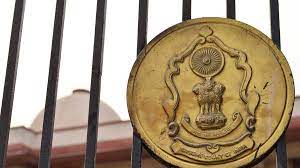The narrow question is benefits can be recovered from the appellants who have superannuated. (Para 1)
The State Government made an application for recall of the said order dated 7th May 2013 on the ground that the order dated 4th August 2011 issued by the Principal Secretary was not consistent with the orders issued by the Finance Department. (Para 5)
This action of recovery, as well as the order dated 29th May 2014, were challenged by the appellants by filing writ petitions, which have been dismissed by the impugned judgment and order. (Para 6)
As held earlier, under the order dated 4th August 2011, the benefit of personal/promotional pay scale was granted only on Ayurvedic Medical Officers upon completing 8 and 14 years of service. The said order was contrary to the order of the Finance Department and, therefore, was rightly withdrawn as we have held earlier. We may note here that by the order dated 8th November 2006, the personal time-bound pay scale was granted to the appellants, subject to the condition that if the Government takes any decision to the contrary, the amount will be recovered from the salary of the concerned medical officers. (Para 13)
While dealing with the refund issue, the High Court has held that the appellants, being Ayurvedic Medical Officers, do not belong to a weaker section of the society and, therefore, recovery will not be inequitable. Moreover, even after the grant of monetary benefits in terms of the Government Order dated 4th August 2011, the designation of the appellants, their duties and responsibilities remained the same. Therefore, the High Court was right in not setting aside the order of recovery. (Para 14)
SUPREME COURT OF INDIA
2024 STPL(Web) 29 SC
[2024 INSC 29]
Dr. Balbir Singh Bhandari Vs. State Of Uttarakhand & Ors
With Civil Appeal No. 5935 of 2023 Civil Appeal No. 5937 of 2023 Civil Appeal No. 5938 of 2023 Civil Appeal No. 5934 of 2023 Civil Appeal No. 5936 of 2023 Civil Appeal No. 5941 of 2023 and Civil Appeal Nos. 5939-5940 of 2023-Decided on 10-01-2024
https://stpllaw.in/wp-content/uploads/2024/01/2024-STPLWeb-29-SC.pdf







